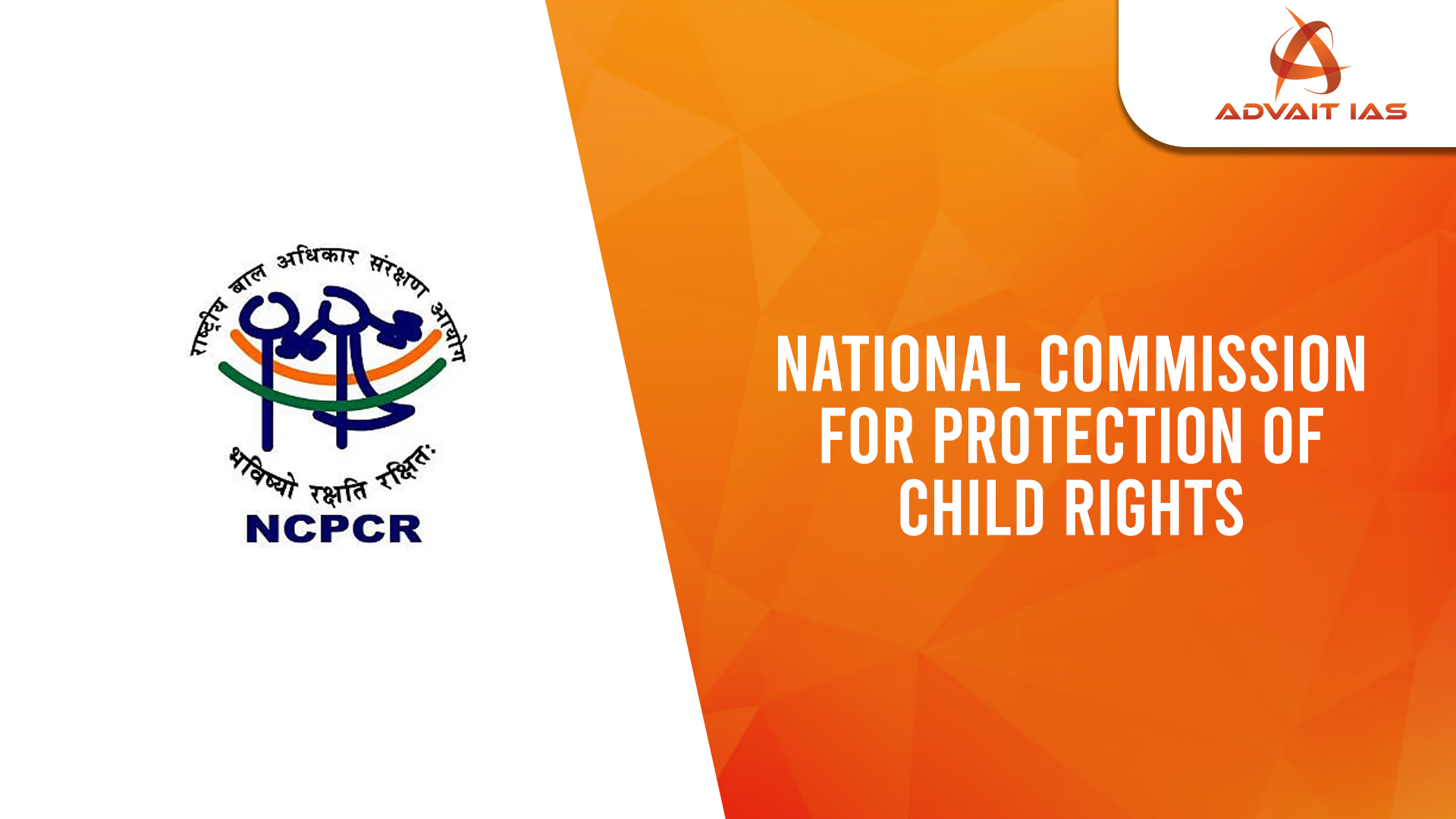The National Commission for Protection of Child Rights (NCPCR), held a National Consultation on Dissemination and Awareness of the Protection of Children from Sexual Offences (POCSO) Act, 2012 and the Child and Adolescent Labour (Prohibition and Regulation) CAL (P&R) Act, 1986. Around 300 participants from various Central and State Ministries, State Police Departments, SCPCRs, NGOs participated in the aforementioned event.
National Commission for Protection of Child Rights (NCPCR)
- NCPCR is a statutory body constituted under the Commission for Protection of Child Rights (CPCR) Act, 2005.
- It is mandated to ensure protection and promotion of child rights in India.
- It monitors implementation of:
- Protection of Children from Sexual Offences (POCSO) Act, 2012
- Juvenile Justice (Care and Protection of Children) Act, 2015
- Right to Education (RTE) Act, 2009
- India ratified the UN Convention on the Rights of the Child (CRC) in 1992.
Composition of NCPCR
- Chairperson
- Eminent person with notable work in child welfare.
- Tenure: 3 years or till 65 years of age, whichever is earlier.
- Max: 2 terms
- 6 Members
- At least 2 must be women.
- Eminent persons in:
- Education, child health/care/welfare
- Juvenile justice, child labour elimination
- Child psychology/sociology, child laws
- Tenure: 3 years or till 60 years of age, whichever is earlier.
- Max: 2 terms
Appointment & Removal
- Appointed by: Central Government
- Chairperson is appointed on recommendation of a 3-member committee headed by Minister of Education.
- Removal Grounds:
- Insolvency, paid employment during tenure, incapacity, unsound mind
- Moral turpitude conviction, abuse of office
- Right to be heard before removal.
Functions and Responsibilities
- Review & recommend measures on child rights safeguards.
- Submit annual and special reports to the government.
- Investigate child rights violations; recommend legal action.
- Evaluate policies and programs related to child rights.
- Promote research and awareness on child rights.
- Inspect childcare institutions, juvenile homes, etc.
- Suo motu action in case of violations or deprivation of rights.
Specific Mandates under Key Laws
- RTE Act, 2009: Monitor rights and recommend reforms.
- POCSO Act, 2012:
- Monitor designation of Special Courts
- Monitor framing of child-friendly procedures (Sec 39)
- Child Care Institutions (CCIs):
- Conduct social audits (as per Supreme Court direction)
Powers of NCPCR
- Powers of a Civil Court during inquiries:
- Summon attendance, examine witnesses on oath
- Require production of documents
- Receive affidavits, requisition public records
- Issue commissions for evidence
Post-Inquiry Actions
- Recommend prosecution of offenders
- Approach Supreme Court/High Courts for appropriate reliefs
- Suggest interim relief to victims/families






